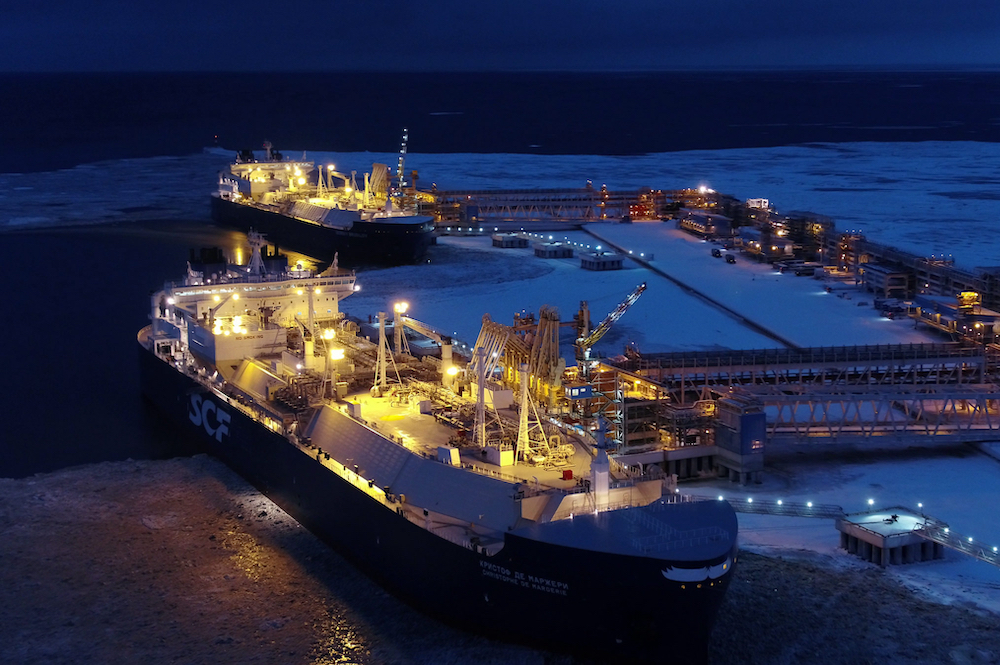EU reps call on state-backed lenders to halt investment in gas project in Russian Arctic
European support for Arctic LNG 2 is “contradictory” to carbon-neutrality goals, the MEPs wrote.

Members of the European Parliament from France, Germany and Italy are calling on those countries’ governments to stop their state-backed investors from chipping in to fund the second natural-gas plant located on Russia’s northern coast on-line.
“It seems unreasonable to send a contradictory signal by the support of our governments to the Arctic LNG II gas project,” said a letter signed by 39 of the three countries’ 250 MEPs, most of whom are affiliated with national Green parties.
As with the currently operational Yamal LNG plant, which is located on the same enormous gas field that accounts for 80 percent of Russian natural gas production 15 percent of the world’s gas production, most of Arctic LNG 2’s output will be shipped to Asian markets in tankers that have been specially developed to sail in Russia’s Arctic waterway. The remainder will be sent to Europe.
Both Arctic LNG 2 and Yamal LNG are operated by Novatek, Russia’s largest privately owned gas producer.
[Novatek orders 10 Arc7 carriers from Russia’s Zvezda Shipyard for Arctic LNG 2]
Public lending institutions from the three countries were reported last year to be considering whether to invest $2 billion in the Arctic LNG 2 project. Doing so would place them in the company of Russian, Chinese and Japanese investment banks who are expected to contribute the $9.5 billion in outside financing Novatek says the operation requires.
Total, a French energy firm, is one of Novatek’s main partners in both the $21 billion Arctic LNG 2 project, which is due to begin production in 2023 and be fully operational in 2025, and the Yamal LNG operation.
In addition to arguing that state-backed investments were better placed in renewable forms of energy that would help the EU meet its goal of a 55 percent reduction in carbon pollution by 2030, the MEPs said their opposition was rooted in concern the plant would spoil the local environment and undermine Europe’s energy independence.
“Replacing energy production with gas means increasing Europe’s energy import bill, and deepening our reliance on Russia, while Russia has proved to be times and times again a highly unreliable supplier, as well as politically confrontational, particularly in the past months. As opposed to local renewable energy sources, increased gas use runs against Europe’s objectives of energy competitiveness and independence.”
[Winter transits along the Northern Sea Route open up a new frontier in Arctic shipping]
The group also said that investing in Arctic LNG 2 “raises moral questions linked to human rights violations occurring in Russia.”
The letter comes on the heels of comments made last month by Frans Timmermans, the executive vice president of the European Commission, the EU’s executive arm, that the bloc did not see gas a as “bridge” fuel that would help it transition from dirtier forms of fuel, such as coal.
Instead, natural gas, he told a gathering of the European gas industry on March 25, is “a fuel that will need to be scaled back at considerable speed as we pursue the transition to net zero,” which it hopes to achieve by 2050.